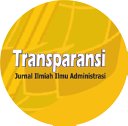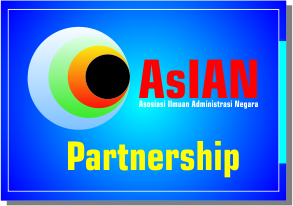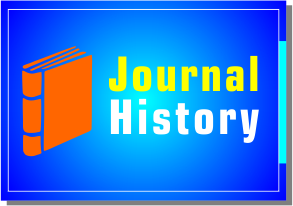Proses Implementasi Kebijakan Pemerintah Kota Bogor dalam Penataan Angkutan Kota melalui BisKita Transpakuan Tahun 2021-2023
DOI:
https://doi.org/10.31334/transparansi.v8i1.4586Keywords:
BisKita TransPakuan, Traffic Congestion, Bogor City Government, Kemacetan Lalu Lintas, Pemerintah Kota Bogor,Abstract
(The Implementation Process of the Bogor City Government's Policy on Urban Transportation Management Through BisKita Transpakuan in 2021-2023)
Traffic congestion in Bogor City is a problem that attracts public attention due to the increasing volume of vehicles on every road in Bogor City. This has encouraged the Bogor City Government to provide mass public transport aimed at reducing congestion. So in the end, the policy on Bus Rapid Transit (BRT) with a service purchase scheme through BisKita TransPakuan was implemented as part of the development of public transportation in order to overcome congestion in Bogor City, through cooperation between the Bogor City Government and the Ministry of Transportation of the Republic of Indonesia through the Jabodetabek Transportation Management Agency (BPTJ). This research uses descriptive qualitative with data collection through interviews, observations, and also literature studies to describe the BisKita TransPakuan policy implementation process. The theoretical basis used is the theory of policy implementation according to Mazmanian and Sabatier (1983) specifically discussing aspects of the policy implementation process. This research aims to see how the BisKita TransPakuan policy implementation process by analysing each line of policy implementation that affects each other and the capacity of the implementing agency of the policy implementation.
Abstrak
Kemacetan lalu lintas di Kota Bogor menjadi permasalahan yang menarik perhatian publik akibat volume kendaraan di setiap ruas jalan Kota Bogor semakin meningkat. Hal ini mendorong Pemerintah kota Bogor untuk menghadirkan angkutan umum massal yang bertujuan mengurangi kemacetan. Sehingga pada akhirnya, kebijakan mengenai Bus Rapid Transit (BRT) dengan skema pembelian layanan melalui BisKita TransPakuan diimplementasikan sebagai bagian dari pengembangan transportasi publik agar dapat mengatasi kemacetan di Kota Bogor, melalui kerja sama antara Pemerintah Kota Bogor dengan Kementerian Perhubungan Republik Indonesia melalui Badan Pengelola Transportasi Jabodetabek (BPTJ). Penelitian ini menggunakan kualitatif bersifat deskriptif dengan pengumpulan data melalui wawancara, observasi, dan juga studi literatur untuk menggambarkan proses implementasi kebijakan BisKita TransPakuan. Landasan teori yang digunakan yaitu teori implementasi kebijakan menurut Mazmanian dan Sabatier (1983) spesifik membahas aspek proses implementasi kebijakan. Penelitian ini bertujuan menganalisis bagaimana proses implementasi kebijakan BisKita TransPakuan dengan menganalisis setiap lini implementasi kebijakan yang saling mempengaruhi maupun kapasitas badan pelaksana implementasi kebijakan tersebut.
References
Arum, Naafi’ Sekar (2022). Membangun Layanan Transportasi Terintegrasi melalui BisKita TransPakuan. Buletin Pembangunan Daerah Bappeda Kota Bogor. Vol. 1, No. 2 September 2022.
Detikcom. (2022, 22 Februari). Bogor jadi kota termacet kelima di Indonesia, begini respons Bima Arya. Detik News.https://news.detik.com/berita-jawa-barat/d-5894932/bogor-jadi-kota-termacet-kelima-di-indonesia-begini-respons-bima-arya
ERA.id. (2022, 22 Februari). Bogor jadi kota termacet peringkat lima versi INRIX, Bima Arya akui fokus pengurangan angkot. ERA.id. https://era.id/daerah/85306/bogor-jadi-kota-termacet-peringkat-lima-versi-inrix-bima-arya-akui-fokus-pengurangan-angkot
Laporan Akhir Rancangan Teknokratik Rencana Pembangunan Jangka Menengah Kota Bogor Tahun 2025-2029
Laporan Tahunan 2021 Kementerian Perhubungan, Badan Pengelola Transportasi Jabodetabek.Diakses melalui https://ppid.dephub.go.id/fileupload/informasiberkala/20220705174313.LAPTAH_BPTJ_2021.pdf
Laporan Tahunan 2022 Kementerian Perhubungan, Badan Pengelola Transportasi Jabodetabek. Diakses melalui
https://ppid.dephub.go.id/fileupload/informasiberkala/20230615135423.LAPTAH_BPTJ_2022.pdf
Laporan Tahunan 2023 Kementerian Perhubungan, Badan Pengelola Transportasi Jabodetabek. Diakses melalui https://ppid.dephub.go.id/fileupload/informasiberkala/20240813144124.LAPTAH_BPTJ_Tahun_2023.pdf
Laporan Kinerja Badan Pengelola Transportasi Jabodetabek Tahun 2022. Diakses melalui https://ppid.dephub.go.id/fileupload/informasiberkala/20230615131020.LKIP_BPTJ_2022.pdf
Laporan Kinerja Badan Pengelola Transportasi Jabodetabek Tahun 2023. Diakses melalui https://ppid.dephub.go.id/fileupload/informasiberkala/20240628152808.LKIP_BPTJ_2023.pdf
Luthfiyyah, P. H. D., Yuningsih, N. Y., & Afrilia, U. A. (2024). Kualitas Pelayanan Transportasi Publik Bus Rapid Transit (Brt) Melalui Biskita Trans Pakuan Kota Bogor Tahun 2022. Jurnal Administrasi Pemerintahan (Janitra), 4(1), 21-30.
Masterplan Smart City Kota Bogor Tahun 2017-2021. Diakses melalui https://smartcity.kotabogor.go.id/assets/BOOKLET/buku-2.-masterplan-smart-city-kota-bogor.pdf
Murtejo, T. (2020). Kajian Rerouting Trayek Angkutan Umum Perkotaan: Studi Kasus di Kota Bogor. Prosiding Lppm Uika Bogor.
Penyusunan Rencana Pembangunan Daerah (P-RPD) Kota Bogor
Peraturan Pemerintah Daerah Kota Bogor Nomor 8 Tahun 2023 tentang Transportasi
Rencana Pembangunan Jangka Panjang Daerah (RPJPD) Tahun 2025-2045
Susanto, B. A. N. S. B., & Munandar, M. A. (2023). Urban Transportation Innovation: Implementation of the “Biskita Trans Pakuan†Bus Transportation Policy as an Effort to Improve Mass Transportation in Bogor City 2021-2022. Unnes Political Science Journal, 7(2), 57-64.
Utami, H., Arianto, A., Sulistiawan, D. P., Rohmah, T. A., Yakin, M. A., & Kurniawan, I. A. (2024). Kebijakan Trans Pakuan Bogor. El-Mal: Jurnal Kajian Ekonomi & Bisnis Islam, 5(1), 47-54.
Downloads
Published
Issue
Section
License
Copyright (c) 2025 Transparansi : Jurnal Ilmiah Ilmu Administrasi

This work is licensed under a Creative Commons Attribution-ShareAlike 4.0 International License.

This work is licensed under a Creative Commons Attribution-ShareAlike 4.0 International License
Please find the rights and licenses in Transparansi : Jurnal Ilmiah Ilmu Administrasi By submitting the article/manuscript of the article, the author(s) agree with this policy. No specific document sign-off is required.
- License
The commercial use of the article will be governed by the Creative Commons Attribution license as currently displayed on Creative Commons Attribution-ShareAlike 4.0 International License.
2. Author(s)' Warranties
The author warrants that the article is original, written by stated author(s), has not been published before, contains no unlawful statements, does not infringe the rights of others, is subject to copyright that is vested exclusively in the author and free of any third party rights, and that any necessary written permissions to quote from other sources have been obtained by the author(s).
3. User Rights
Transparansi : Jurnal Ilmiah Ilmu Administrasi spirit is to disseminate articles published are as free as possible. Under the Creative Commons license, Transparansi : Jurnal Ilmiah Ilmu Administrasi permits users to copy, distribute, display, and perform the work for non-commercial purposes only. Users will also need to attribute authors and Transparansi : Jurnal Ilmiah Ilmu Administrasi on distributing works in the journal and other media of publications.
4. Co-Authorship
If the article was jointly prepared by more than one author, any authors submitting the manuscript warrants that he/she has been authorized by all co-authors to be agreed on this copyright and license notice (agreement) on their behalf, and agrees to inform his/her co-authors of the terms of this policy. Transparansi : Jurnal Ilmiah Ilmu Administrasi will not be held liable for anything that may arise due to the author(s) internal dispute. Transparansi : Jurnal Ilmiah Ilmu Administrasi will only communicate with the corresponding author.
5. Miscellaneous
Transparansi : Jurnal Ilmiah Ilmu Administrasi will publish the article (or have it published) in the journal if the article’s editorial process is successfully completed. Transparansi : Jurnal Ilmiah Ilmu Administrasi editors may modify the article to a style of punctuation, spelling, capitalization, referencing and usage that deems appropriate. The author acknowledges that the article may be published so that it will be publicly accessible and such access will be free of charge for the readers as mentioned in point 3.
Every accepted manuscript should be accompanied by "Copyright Transfer Agreement"prior to the article publication.











